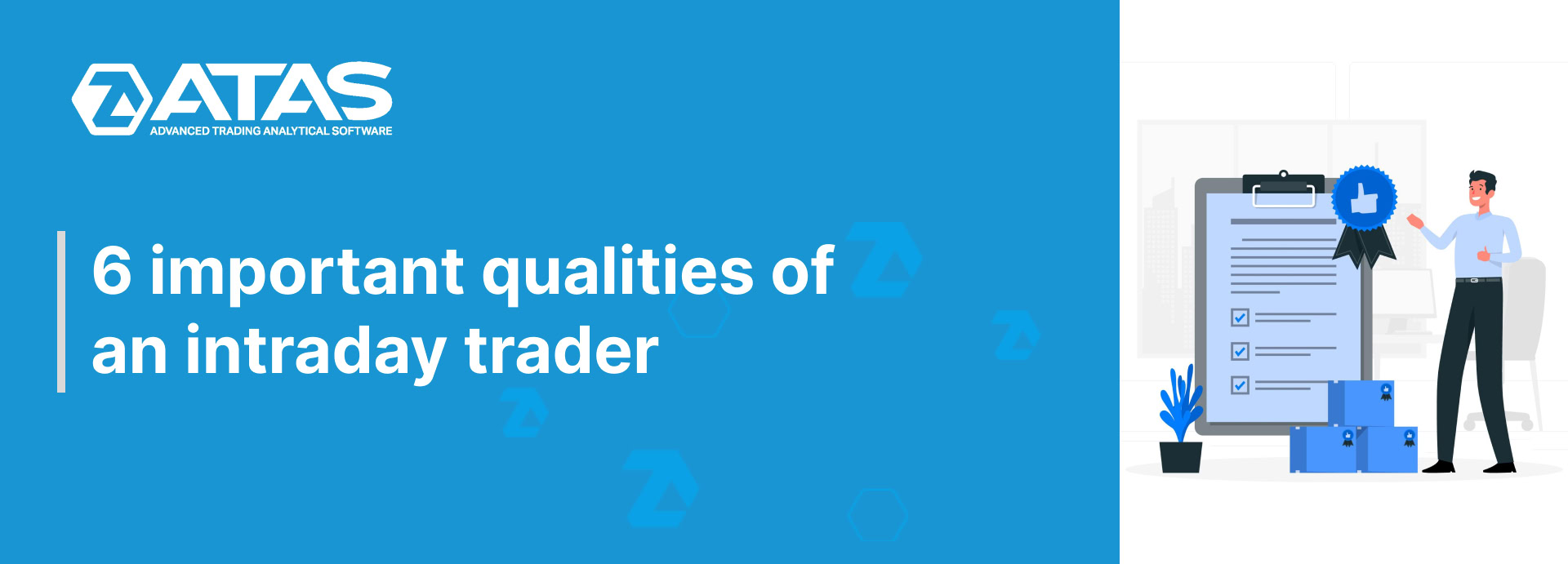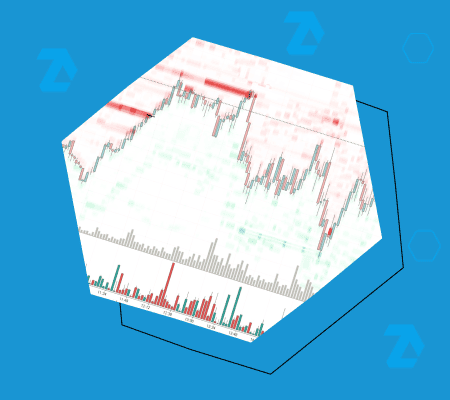
It is not sufficient for successful intraday trading just to develop a trading system and start applying it in practice. In fact, it’s not all that simple. Professional traders constantly develop certain qualities for efficient use of trading methods under different market conditions. Beginner traders would hardly possess all necessary personal qualities. Successful trading envisages availability of a rare set of personal qualities, which should be constantly developed.
It means that no one is born a trader, you should become one through hard work with a focus on the development of 6 significant qualities which we will discuss in this article.
In this article:
- Discipline
- Patience
- Flexibility
- Tolerance to stress
- Independence
- Ability to forecast
- Closing remarks
Discipline
Discipline is the key personal quality which every trader should possess. The market provides endless time for trading and a huge number of trading instruments. In fact, you may execute trades every second but it is important to understand that only a few of these seconds may bring a positive result. That is why if your trading strategy envisages execution of about 5 trades a day, while limitation of losses and goals are set automatically for every trade, you will spend about 5 seconds a day for trading. Any additional time spent in the market could result in the loss of the funds already made. Do not execute too many trades, do not lose good opportunities and learn to hold open positions as long as it is required by your trading system – not more and not less.
It doesn’t mean that working out your trades during a day would take just 5 seconds. We mean that you need just one second to post one order after which you need to quietly wait for another signal.
It is important to understand that a trader should spend very little time for direct trading activity even if he is a very active intraday trader. He should stay out of the market the rest of time orderly waiting for new trading signals and act without hesitation in accordance with his trading plan as soon as a new trading opportunity emerges.
Traders need to constantly be very disciplined in order to stay out of the market until new trading signals emerge and immediately react when trading opportunities become available and also in order to properly manage open positions.
Patience
Patience is directly connected with discipline. As we discussed above, the intraday trading (as well as any other trading type) requires the ability to wait. Too early trade execution is a wide-spread problem among beginner traders. They’ve just insufficiently developed their patience to wait for ideal entry and exit. This quality goes in hand with discipline – keep patience until there is a signal to act. You should be quite disciplined to act without hesitation when a signal appears.
Traders need patience in waiting for ideal points of entry or exit (based on the strategy rules) but they should act quickly and immediately when there is an opportunity in the market. Long periods of keeping patience usually alternate with a necessity to make quick decisions. A trader constantly needs to be alert in order to open a trade at the right moment strictly observing the trading system rules.
Flexibility
The situation is constantly changing in the market and you will never see two identical trading days. Due to this, those traders who study textbook examples of the use of one or another trading strategy often have problems. They come to the market and do not find ideal patterns and setups due to the fact that volatility, market phase (trend/range), liquidity and other market indicators are constantly changing.
Successful traders are able to apply their trading strategies in different market situations and also know when they should stop trading (for example, during a flat in the event of the trend monitoring strategy). It requires flexibility of mind. It is important for a trader to learn to analyze the price behaviour and to use it to find the best methods of the strategy application based on the market conditions.
It is important to learn to apply the trading strategy in the real time mode under any market conditions and/or understand when it is better to hold back from trading. Inability to adapt to the current market conditions often results in a quick drawdown of the trading capital.
Tolerance to stress
Tolerance to stress is a new concept which is often used in the modern world. It is also known in common terms as the ‘thick-skin quality’. There is no trade without losses that is why it is very important to learn how to quickly forget about losses. If you keep experiencing negative feelings and disappointment from each loss you’ve suffered, your trading strategy will never bring you any positive result. Moreover, your whole life might go down with such an attitude to trading. That is why it is critically important to learn how to accept both losses and profits quietly and without emotions.
Successful traders differ from unsuccessful ones by the circumstance that profitable trades bring them a bit more funds than they lose in loss-making trades. In the event of a rather low risk-reward ratio, the 30-40% win rate will be sufficient to demonstrate a positive result. Other traders can stay successful when executing 60-70% of profitable trades with the risk-reward ratio being in the area of 1. As you see, loss-making trades do happen. It is a part of trading and you should accept it. Profitable trades will cover your losses but only until you control your psychological state when you make losses. If a loss-making trade makes you lose focus, you, most probably, due to negative emotions and absent-mindedness, would lose a signal for opening the next trade, which potentially could have brought a profit to you.
A drawdown in the form of a number of losses also takes place. Traders should stay attentive and keep rational thinking during such periods and prevent influence of a loss on making trading decisions. Such an approach requires strong resilience but it will allow to focus on a strict performance of the trading plan, which, in its turn, would facilitate filtering out low-quality trading signals.
It is important to face the music when you make losses. Loss-making trades are inevitable and what really is important – how a trader reacts to them. Learn to keep temper and stick to your trading plan after a series of losses. In case you constantly make losses even if you strictly follow your trading rules, then, most probably, the current market conditions do not support efficient application of your trading system. In such a case, stop trading and wait for a favourable market situation.
Independence
Initially, practically any beginner trader needs certain help in order to overcome the threshold of complete incompetence. One can get this help from reading articles and books, watching videos about trading or tutorship. However, in the end, you will have to take responsibility for your trading decisions.
After all, every trader should develop the feeling of independence and stop relying on others. The majority of successful traders choose this way since they believe that it is the most efficient one. If you developed your own trading method which works for you, it is absolutely inefficient to rely on somebody else’s opinion. Just follow your trading plan and don’t get distracted by outside noise. Don’t let somebody else’s opinions destruct your trading!
There are traders who have difficulties to become independent of others. They constantly run from one tutor to another and browse the Internet day and night in search of the Grail. After a subscription to some guru training expires, they are lost and do not understand how to trade since they got used to rely on somebody else’s opinion. Try to develop the feeling of independence in yourself. If you take responsibility for your trading education, profits and losses, you will never face the problems described above.
Independence doesn’t assume a complete refusal to interact with the outer world. Adopt existing practices, study and accept help when you need it. Just try to find your own trading style and develop your individual unique trading method.
If you’ve just started your journey in the world of trading, start to develop your independence right now. Accept the knowledge you received from books and trainings, analyze it and adapt the received information to your purposes. If you undertake these steps you will not need to rely on others.
Ability to forecast
Intraday traders often use historical data but, one way or another, they make trading decisions in real time. As well as chess grandmasters do, traders always work out further steps in response to the opponent’s actions. As we already discussed, the markets are not static and the trading decisions are made on the basis of a flow of market data which traders receive every second. Traders consider different scenarios and then plan how they would realize their trading plans (entries, limitation of losses, goals, management of trades, position size, etc.) in every potential situation.
Think about what should happen so that you have all the grounds to enter a trade. This would allow you to focus on the price behaviour and also to think over possible market scenarios. Immediately before opening a trade, think about what might happen after opening a position (in the events when the market practically doesn’t move, moves strongly or weakly, moves quickly along or against you or moves slowly along or against you) and how it would influence your psychology. Analyze how would you act in the event of development of one or another potential scenario. Such an approach would allow you to quickly and flexibly react to the changing market conditions.
Ability to forecast market movements would allow you to act in the market decisively and without hesitation. Develop this quality in yourself, learn to build assumptions about possible variants of the market behaviour and find the most optimal of them. It will take a lot of brain energy at the beginning but the more you practice in forecasting, the more efficient and of higher quality your analytics would be.
Closing remarks
The majority of successful intraday traders were not born with all the above mentioned qualities, but worked hard to develop them in themselves. And it is very good since the positive trading dynamics is not predetermined by your genes and will depend exclusively on your personal development.
Develop your psychological profile. Decide what qualities you need for efficient trading and what your strengths are. Ideally, this profile should be based on the practical trading experience. It will help you to find out your weaknesses and strengths. Self-analysis will help you to assess such important for every trader qualities as: discipline, patience, flexibility, tolerance to stress, independence and ability to forecast.





